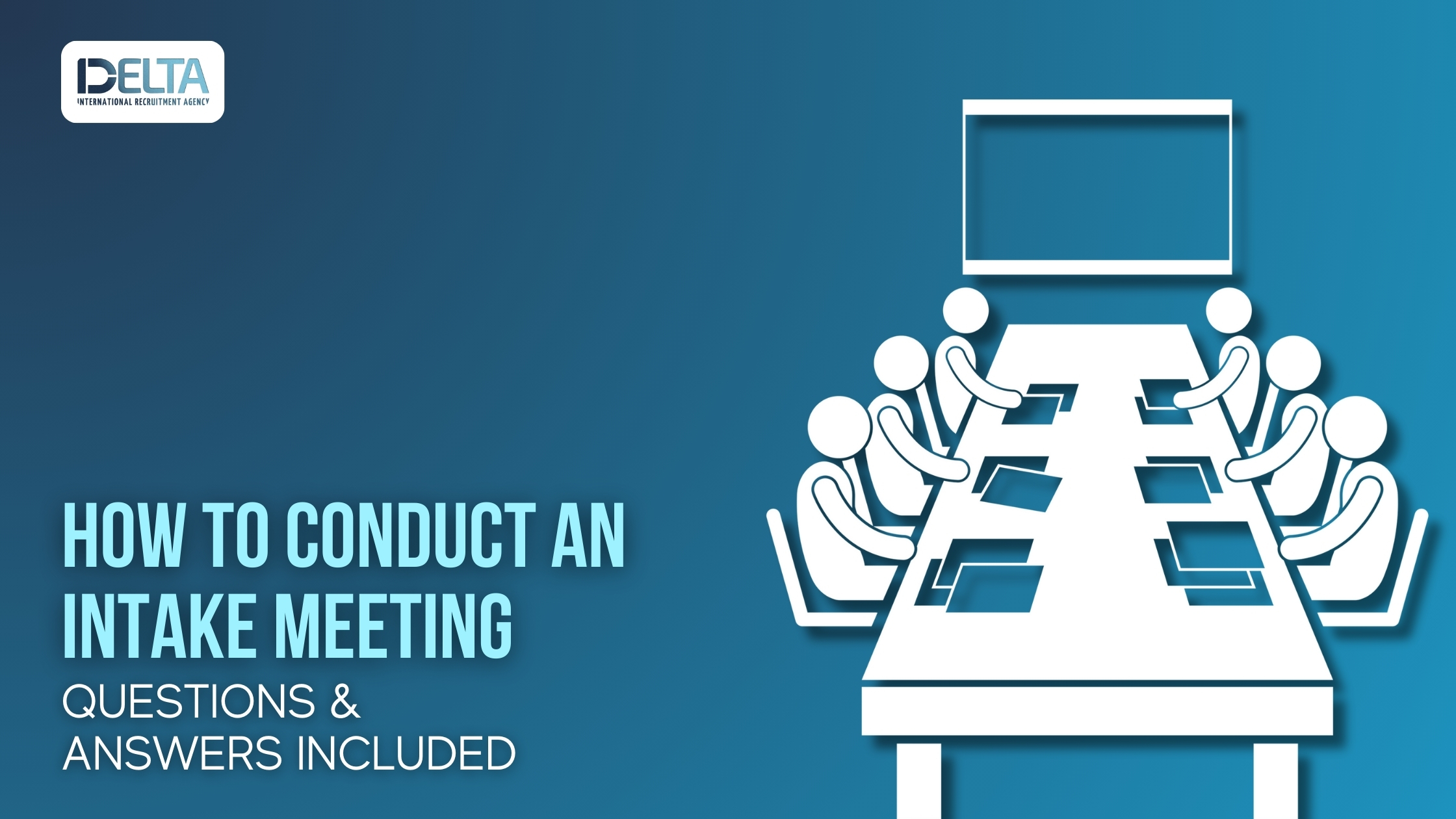Intake meetings are crucial in therecruitment process, providing a structured approach for recruiters and hiringmanagers to align their expectations and set the stage for successful hiring.This article outlines the steps to conduct an effective intake meeting andincludes essential questions and answers to guide you through the process.
What is an Intake Meeting?
An intake meeting is a discussionbetween the recruiter and the hiring manager at the start of the recruitmentprocess. Its primary goal is to clarify the job requirements, define the idealcandidate profile, and establish a plan for the hiring process. This meetingensures that both parties are on the same page, reducing miscommunication andstreamlining the recruitment process.
Preparation for the Intake Meeting
- Conduct Research:
- Salary Benchmarking: Understand the market rate for the position.
- Skills and Qualifications: Identify typical requirements for the role.
- Previous Hires: Analyze the profiles of past successful candidates.
- Set a Timeframe:
- Define the timeline for each stage of the hiring process, including screening, interviews, and final decisions.
- Gather Basic Information:
- Learn about the job's budget, the reason for the opening, and the expected employment duration.
Conducting the Intake Meeting
Key Questions to Ask
- Role and Requirements:
- Why do you need to hire for this role?
- What are the main responsibilities of the new hire?
- What qualifications are must-haves for candidates?
- What are some nice-to-have skills?
- Team Dynamics:
- What is the structure of your current team?
- Who will the new hire report to?
- Will the new hire have direct reports?
- Candidate Profile:
- Describe the ideal candidate for this position.
- What are the top three contributions you expect from the new hire within the first 90 days?
- Logistics and Compensation:
- What is the salary range for this position?
- Are there any additional benefits or perks?
- What is the preferred start date for the new hire?
- Assessment and Interview Process:
- How will candidates be assessed for the required skills?
- Who will be involved in the interview and assessment phases?
- Is a written assessment or project necessary?
Post-Meeting Actions
- Summarize the Meeting:
- Compile a summary of key points and send it to the hiring manager for confirmation.
- Develop a Recruitment Plan:
- Create a tailored strategy based on the insights from the meeting. This includes defining role requirements, setting clear objectives, and choosing appropriate recruitment channels.
- Regular Communication:
- Maintain consistent communication with the hiring manager throughout the recruitment process to ensure alignment and address any issues promptly.
- Monitor the Timeline:
- Keep track of the recruitment timeline to ensure that the hiring process stays on schedule and identify any potential delays early.
Conclusion
Conducting an effective intakemeeting is essential for aligning the expectations of recruiters and hiringmanagers, ensuring a smooth and efficient recruitment process. By preparingthoroughly, asking the right questions, and maintaining open communication, youcan set a solid foundation for successful hiring.











.webp)
















